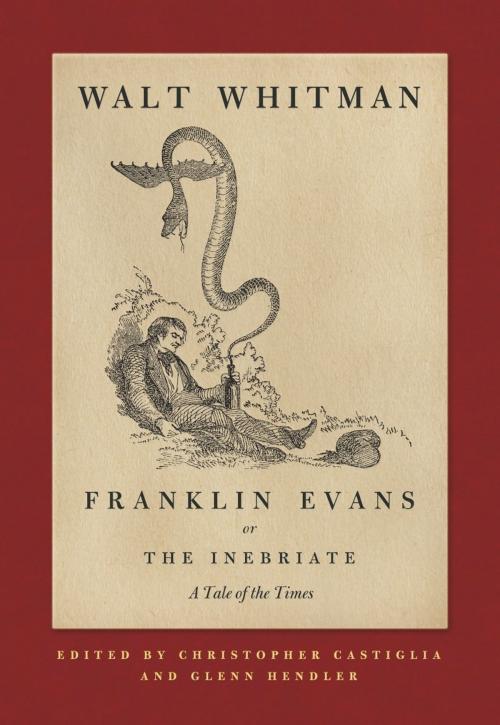| Author: | Walt Whitman | ISBN: | 9780822389989 |
| Publisher: | Duke University Press | Publication: | July 17, 2007 |
| Imprint: | Duke University Press Books | Language: | English |
| Author: | Walt Whitman |
| ISBN: | 9780822389989 |
| Publisher: | Duke University Press |
| Publication: | July 17, 2007 |
| Imprint: | Duke University Press Books |
| Language: | English |
Not many people know that Walt Whitman—arguably the preeminent American poet of the nineteenth century—began his literary career as a novelist. Franklin Evans, or The Inebriate: A Tale of the Times was his first and only novel. Published in 1842, during a period of widespread temperance activity, it became Whitman’s most popular work during his lifetime, selling some twenty thousand copies.
The novel tells the rags-to-riches story of Franklin Evans, an innocent young man from the Long Island countryside who seeks his fortune in New York City. Corrupted by music halls, theaters, and above all taverns, he gradually becomes a drunkard. Until the very end of the tale, Evans’s efforts to abstain fail, and each time he resumes drinking, another series of misadventures ensues. Along the way, Evans encounters a world of mores and conventions rapidly changing in response to the vicissitudes of slavery, investment capital, urban mass culture, and fervent reform. Although Evans finally signs a temperance pledge, his sobriety remains haunted by the often contradictory and unsettling changes in antebellum American culture.
The editors’ substantial introduction situates Franklin Evans in relation to Whitman’s life and career, mid-nineteenth-century American print culture, and many of the developments and institutions the novel depicts, including urbanization, immigration, slavery, the temperance movement, and new understandings of class, race, gender, and sexuality. This edition includes a short temperance story Whitman published at about the same time as he did Franklin Evans, the surviving fragment of what appears to be another unfinished temperance novel by Whitman, and a temperance speech Abraham Lincoln gave the same year that Franklin Evans was published.
Not many people know that Walt Whitman—arguably the preeminent American poet of the nineteenth century—began his literary career as a novelist. Franklin Evans, or The Inebriate: A Tale of the Times was his first and only novel. Published in 1842, during a period of widespread temperance activity, it became Whitman’s most popular work during his lifetime, selling some twenty thousand copies.
The novel tells the rags-to-riches story of Franklin Evans, an innocent young man from the Long Island countryside who seeks his fortune in New York City. Corrupted by music halls, theaters, and above all taverns, he gradually becomes a drunkard. Until the very end of the tale, Evans’s efforts to abstain fail, and each time he resumes drinking, another series of misadventures ensues. Along the way, Evans encounters a world of mores and conventions rapidly changing in response to the vicissitudes of slavery, investment capital, urban mass culture, and fervent reform. Although Evans finally signs a temperance pledge, his sobriety remains haunted by the often contradictory and unsettling changes in antebellum American culture.
The editors’ substantial introduction situates Franklin Evans in relation to Whitman’s life and career, mid-nineteenth-century American print culture, and many of the developments and institutions the novel depicts, including urbanization, immigration, slavery, the temperance movement, and new understandings of class, race, gender, and sexuality. This edition includes a short temperance story Whitman published at about the same time as he did Franklin Evans, the surviving fragment of what appears to be another unfinished temperance novel by Whitman, and a temperance speech Abraham Lincoln gave the same year that Franklin Evans was published.















